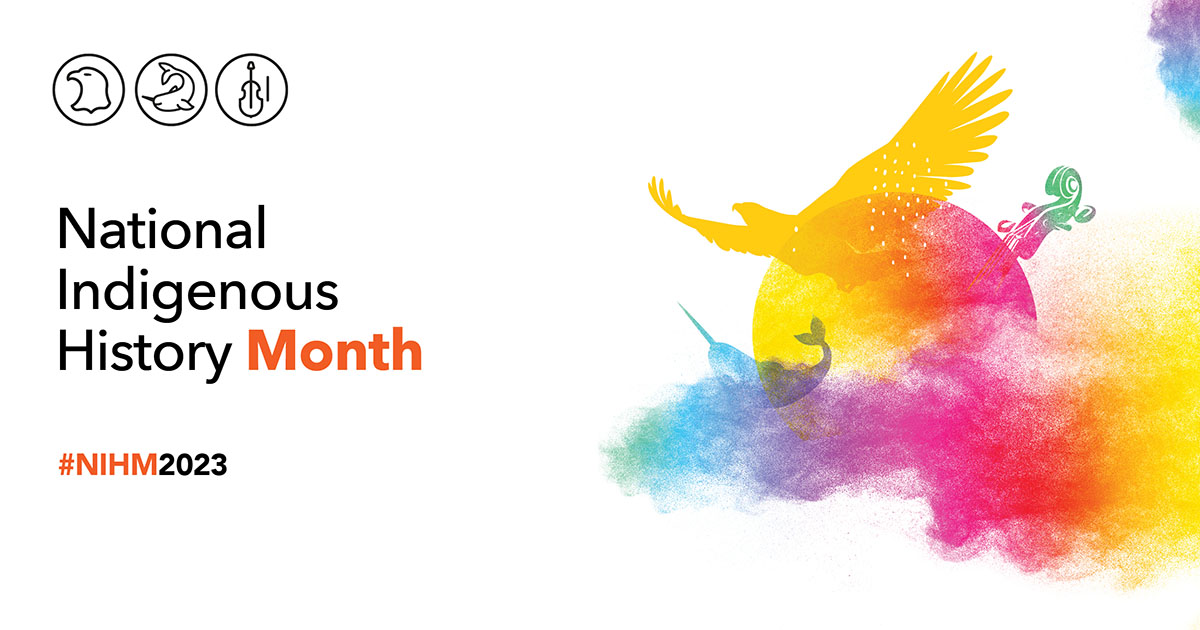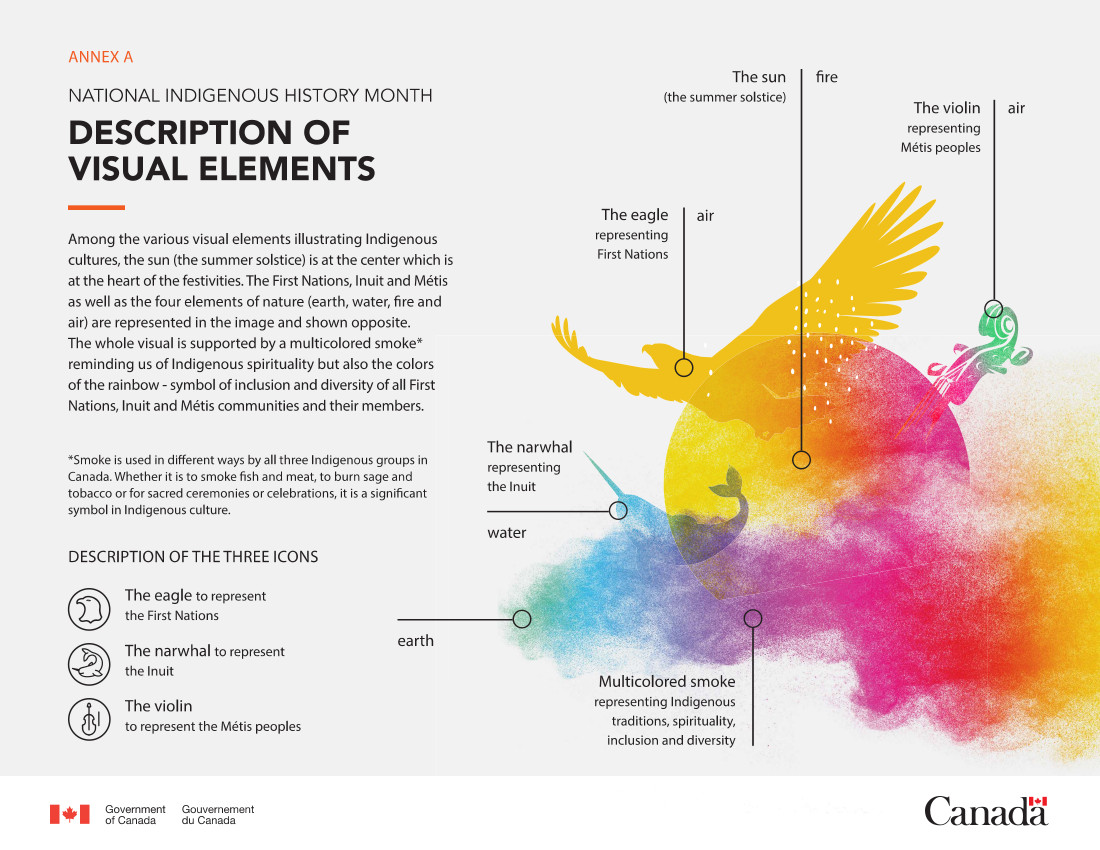
June is National Indigenous History Month, opens a new window and a time of celebration, reflection, and recognition of the diverse cultures, traditions, and contributions of Indigenous peoples. Throughout history, Indigenous communities have faced countless challenges, yet they have persevered, maintaining their unique heritage and playing a crucial role in shaping the world we live in today.
In Canada, the groundwork for National Indigenous Month was laid with the establishment of National Aboriginal Day on June 21st, 1996. Over time, this day evolved into a month-long celebration, officially becoming National Indigenous History Month in 2009. The name was changed to National Indigenous History Month in 2017.
Each week will be dedicated to a different theme to highlight specific aspects of Indigenous history, cultures and perspectives. Explore learning resources on each theme:
- Women, girls and 2SLGBTQI+ people, opens a new window
- Environment, traditional knowledge and territory, opens a new window
- Children and youth, opens a new window
- Languages, cultures and arts, opens a new window
- Reconciliation, opens a new window
"Indigenous peoples" is a collective name for the original peoples of North America and their descendants. The Canadian Constitution recognizes 3 groups of Indigenous peoples: First Nations, Inuit and Métis. These are 3 distinct peoples with unique histories, languages, cultural practices and spiritual beliefs. More than 1.67 million people in Canada identify themselves as an Indigenous person.
First Nations
There are more than 630 First Nation communities in Canada, which represent more than 50 Nations and 50 Indigenous Languages.
Learn more about First Nations:
- Who are the Anishinaabeg?, opens a new window
- Anishinabek Nation, opens a new window
- It's Our Time: The Assembly of First Nations Education Toolkit, opens a new window
- Ahkameyimok Podcast with Perry Bellegarde, opens a new window
A list of titles from First Nations history, politics, culture and literature.
Inuit
Inuit are Indigenous people of the Artic. The word Inuit means "the people" in the Inuit language of Inuktut. The singular of Inuit is Inuk. Many Inuit in Canada live in 53 communities across the northern regions in Inuit Nunangat, which means "the place where Inuit live."
Inuit Nunangat is comprised of 4 regions:
- Inuvialuit (Northwest Territories and Yukon)
- Nunavik (Northern Quebec)
- Nunatsiavut (Labrador)
- Nunavut
Learn more about Inuit:
- Learn an Inuktut word, opens a new window
- Resources about Nunavut
- Inuit Tapiriit Kanatami, opens a new window
- An Online Exhibition of Inuit Print from Cape Dorset, opens a new window
- Anaana's Tent - CBC series, opens a new window
- Inuit Cinema at the NFB, opens a new window
- unikkaat / unipkaat ungipaghat / nallunairutet Circumpolar Waves, opens a new window - Podcast from the Inuit Circumpolar Council, opens a new window
A list of titles from Inuit history, politics, culture and literature.
Métis
The Métis , opens a new windowNation is comprised of descendants of people born of relations between First Nations women and European men. Michif is the language of the Métis people.
Learn more about Metis:
- Métis Nation of Ontario, opens a new window
- Métis National Council, opens a new window
- Learn a Michif Word, opens a new window
- The Virtual Museum of Métis History and Culture
- Michif.org - Learn, speak and live our languages, opens a new window
A list of titles from Métis history, politics, culture and literature.



Add a comment to: First Nations, Inuit and Métis